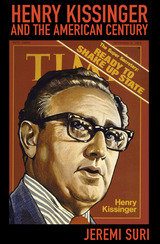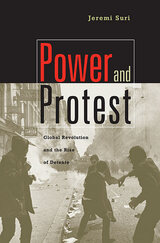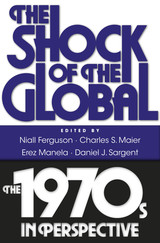
What made Henry Kissinger the kind of diplomat he was? What experiences and influences shaped his worldview and provided the framework for his approach to international relations? Jeremi Suri offers a thought-provoking, interpretive study of one of the most influential and controversial political figures of the twentieth century.
Drawing on research in more than six countries in addition to extensive interviews with Kissinger and others, Suri analyzes the sources of Kissinger's ideas and power and explains why he pursued the policies he did. Kissinger's German-Jewish background, fears of democratic weakness, belief in the primacy of the relationship between the United States and Europe, and faith in the indispensable role America plays in the world shaped his career and his foreign policy. Suri shows how Kissinger's early years in Weimar and Nazi Germany, his experiences in the U.S. Army and at Harvard University, and his relationships with powerful patrons--including Nelson Rockefeller and Richard Nixon--shed new light on the policymaker.
Kissinger's career was a product of the global changes that made the American Century. He remains influential because his ideas are rooted so deeply in dominant assumptions about the world. In treating Kissinger fairly and critically as a historical figure, without polemical judgments, Suri provides critical context for this important figure. He illuminates the legacies of Kissinger's policies for the United States in the twenty-first century.

In a brilliantly-conceived book, Jeremi Suri puts the tumultuous 1960s into a truly international perspective in the first study to examine the connections between great power diplomacy and global social protest. Profoundly disturbed by increasing social and political discontent, Cold War powers united on the international front, in the policy of detente. Though reflecting traditional balance of power considerations, detente thus also developed from a common urge for stability among leaders who by the late 1960s were worried about increasingly threatening domestic social activism.
In the early part of the decade, Cold War pressures simultaneously inspired activists and constrained leaders; within a few years activism turned revolutionary on a global scale. Suri examines the decade through leaders and protesters on three continents, including Mao Zedong, Charles de Gaulle, Martin Luther King Jr., Daniel Cohn-Bendit, and Aleksandr Solzhenitsyn. He describes connections between policy and protest from the Berkeley riots to the Prague Spring, from the Paris strikes to massive unrest in Wuhan, China.
Designed to protect the existing political order and repress movements for change, detente gradually isolated politics from the public. The growth of distrust and disillusion in nearly every society left a lasting legacy of global unrest, fragmentation, and unprecedented public skepticism toward authority.

From the vantage point of the United States or Western Europe, the 1970s was a time of troubles: economic “stagflation,” political scandal, and global turmoil. Yet from an international perspective it was a seminal decade, one that brought the reintegration of the world after the great divisions of the mid-twentieth century. It was the 1970s that introduced the world to the phenomenon of “globalization,” as networks of interdependence bound peoples and societies in new and original ways.
The 1970s saw the breakdown of the postwar economic order and the advent of floating currencies and free capital movements. Non-state actors rose to prominence while the authority of the superpowers diminished. Transnational issues such as environmental protection, population control, and human rights attracted unprecedented attention. The decade transformed international politics, ending the era of bipolarity and launching two great revolutions that would have repercussions in the twenty-first century: the Iranian theocratic revolution and the Chinese market revolution.
The Shock of the Global examines the large-scale structural upheaval of the 1970s by transcending the standard frameworks of national borders and superpower relations. It reveals for the first time an international system in the throes of enduring transformations.
READERS
Browse our collection.
PUBLISHERS
See BiblioVault's publisher services.
STUDENT SERVICES
Files for college accessibility offices.
UChicago Accessibility Resources
home | accessibility | search | about | contact us
BiblioVault ® 2001 - 2024
The University of Chicago Press









